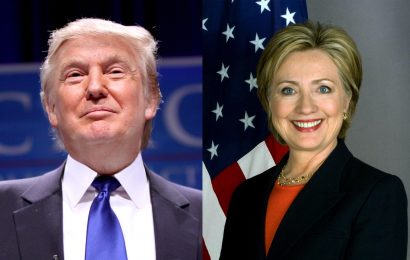Social media competition in filter bubbles and algorithms has a high impact when it comes to online election campaigns.
There are only two weeks left until the next voting session, and there are two things every election expert agrees with: First, that social media (Facebook, mostly) will have a huge impact on the final results, and second, no one has any information or clue on how to measure what’s happening on social media.
“Many of us wish we could study Facebook, but we can’t, because they really don’t share anything.” said Philip Howard, Professor at the University of Oxford’s Internet Institute
“I think that there have been several democratic exercises in the last year that have gone off the rails because of large amounts of misinformation in the public sphere. Brexit and its outcome, and the Trump election and its outcome, are what I think of as ‘mistakes’, in that there were such significant amounts of misinformation out in the public sphere. Not all of that comes from automation. It also comes from the news culture, bubbles of education, and people’s ability to do critical thinking when they read the news. But the proximate cause of misinformation is Facebook serving junk news to large numbers of users.” Howard said
Emily Taylor, chief executive of Oxford Information Labs, agreed and named Facebook’s effect “insidious”. He also expressed similar reservations on fake news being spread all over social media, but added that there is something even scarrier: “we now exist in these curated environments, where we never see anything outside our own bubble … and we don’t realize how curated they are.”
A study from 2015 shows that more than 60% of Facebook users are completely unaware of any curation on Facebook. They believe that everything that appears from their friends and followed pages appeared in their news feed.
The reality is a little different. The majority of the content will never appear in front of them. Instead, Facebook shows an algorithmic selection, based on a number of criteria: the most important one is whether anyone has paid to promote a post, and how they have interacted with similar posts in the past, along with how many other people have done the same.
Advertising needs to be vaguely open, meaning that sponsored posts should be marked as such, while political parties need to report advertising spend at a national and local level. However, no such thing applies to automation.
“You see a post with 25,000 retweets or shares that comes into your timeline, and you don’t know how many of them are human.” Taylor said
Academics are trying to study how such techniques are applied and if they can really swing election campaigns. However, their efforts are affected by the fact that social media platforms, such as Facebook, are opaque to outsiders.
On the other hand, Facebook allows some researchers to access the information that answers all these questions – however, it employs them first. The company publishes a set of research carried out by its scientists. Such research gives a slight view of the organization, far from being enough.
After testing both Facebook and Twitter, the conclusion said that the debates that are most automated on Twitter, are also most automated on Facebook, and in the same direction.




